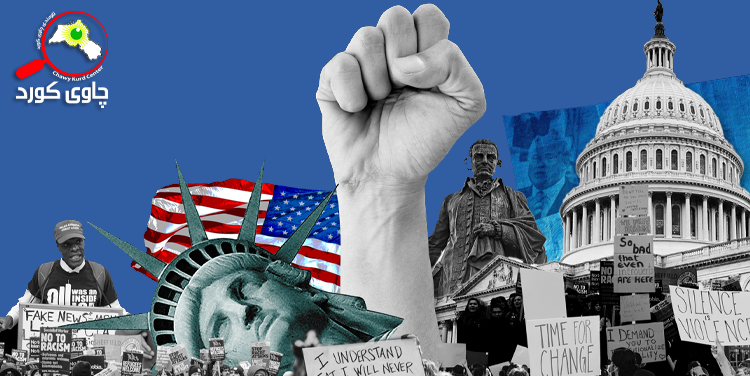Through looking at the history of the world, we have seen that the world has gone through several stories; each story had a beginning and an end, such as fascism, communism, etc. If we look at these stories, we see that each of them had an ideology and wanted to control the world through their ideologies, which is why ideologies are constantly in conflict with each other to dominate the world (the conflict of systems). Obviously, ideology is a term derived from Latin, which consists of two words; (ideo) means belief (logy) means science. So we can say that ideology means the science of belief. The first person used the term ideology was the French scientist Destat Tracy (1755-1836). Thus we can say, ideology means a set of beliefs of an individual or group, which often refer to a set of political ideas, which are specific to a particular culture. If we look at the history of neoliberal ideology, it goes back to classical liberalism, which Adam Smith claimed, that after classical liberalism fell into crisis and was reformed again, it became the dominant ideology in the world. This means that the ideology of neoliberalism is the political and economic ideology that emerged during World War II as a result of several attempts to reinforce classical liberalism.
Neoliberalism is a new phenomenon that dates back to the late 20th century and after World War II. Neoliberalism refers to part of a paradigm shift that followed the perceived failure of postwar and neo-Keynesian economics to resolve the stalemate of the 1970s. The collapse of the Soviet Union and the end of the Cold War also led to the triumph of neoliberalism in the United States and around the world. To define neoliberalism in simple terms, it is a political model that includes politics and economics, which is pro-private and seeks to transfer control of economic factors from the government to the private sector. Neoliberalism, then, is characterized by a strong emphasis on free-market capitalism, as well as limitations on government intervention in the economy and an emphasis on individual freedom.
In the name of freedom, individual rights, freedom of trade, reducing taxes and restrictions on companies, neoliberalism has always served the capitalist class and has oppressed the poor and created inequality. This system (neoliberalism), even by the individuals of the dominant countries of this system, has become a place of hopelessness, poverty and inequality.
On the other hand, this system claims gender equality, but gender equality is nothing more than a claim. Even the countries where this system applied have not been able to achieve gender equality in their countries. If we look at the dominant country of this system (the United States), we see a very clear gender difference between blacks and whites, especially in terms of income, blacks earn $ 4,000 a year, compared to whites $ 10,000. At the same time, the neoliberal system has led to an increase in working hours, which a country like Britain has increased the working rate by more than one month a year, which shows that this system has led to more oppression and despair of workers. What is seen in neoliberalism is the domination of the capitalist class, which has led to increased poverty and gender inequality. This means that the system is in the hands of a few capitalists who move it according to their own interests.
Even now that neoliberalism is the dominant global ideology led by the United States and Europe; we see that this ideology is in a hurry to die because its main principle, the economy, has faced a major collapse and crisis. At the same time, neoliberalism has led to social inequality, increased poverty and monopoly. It has also distorted social relations, because social relations in this system are based on private interests and ownership. This has led to the decline of this system day by day and the desirable system that the world hoped for, so this has led the world to look for an alternative to this system.





























































